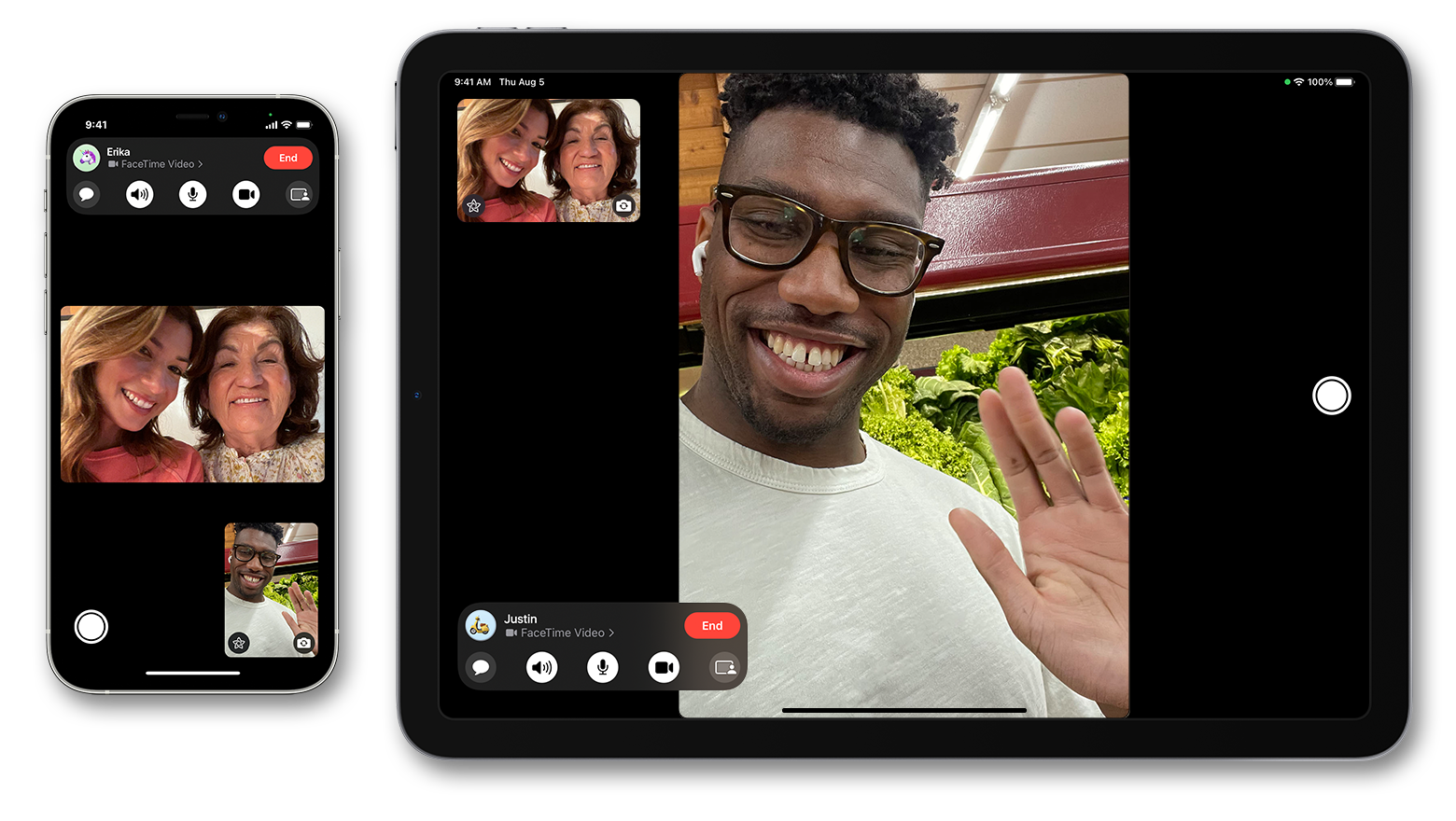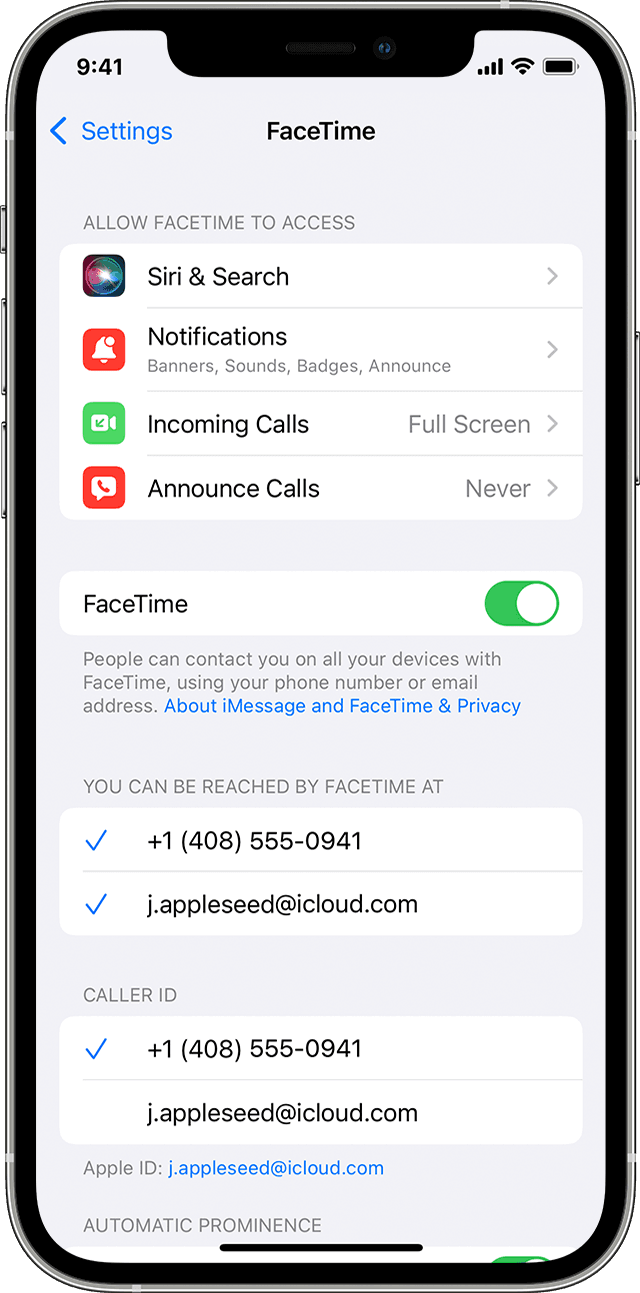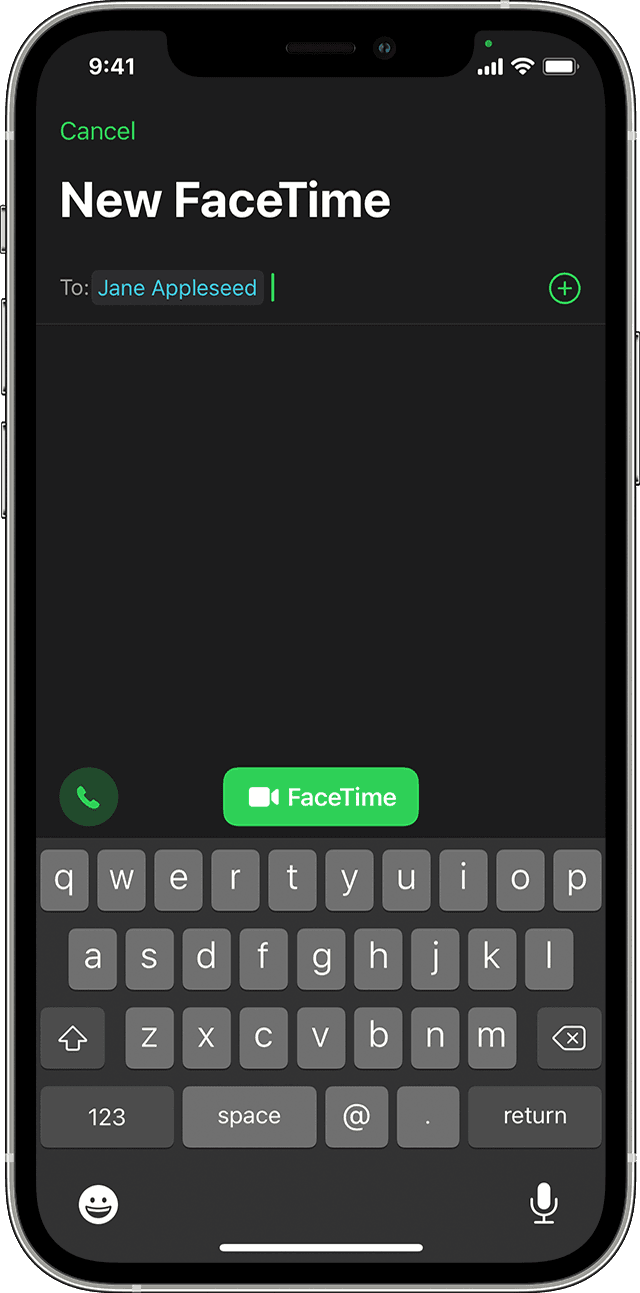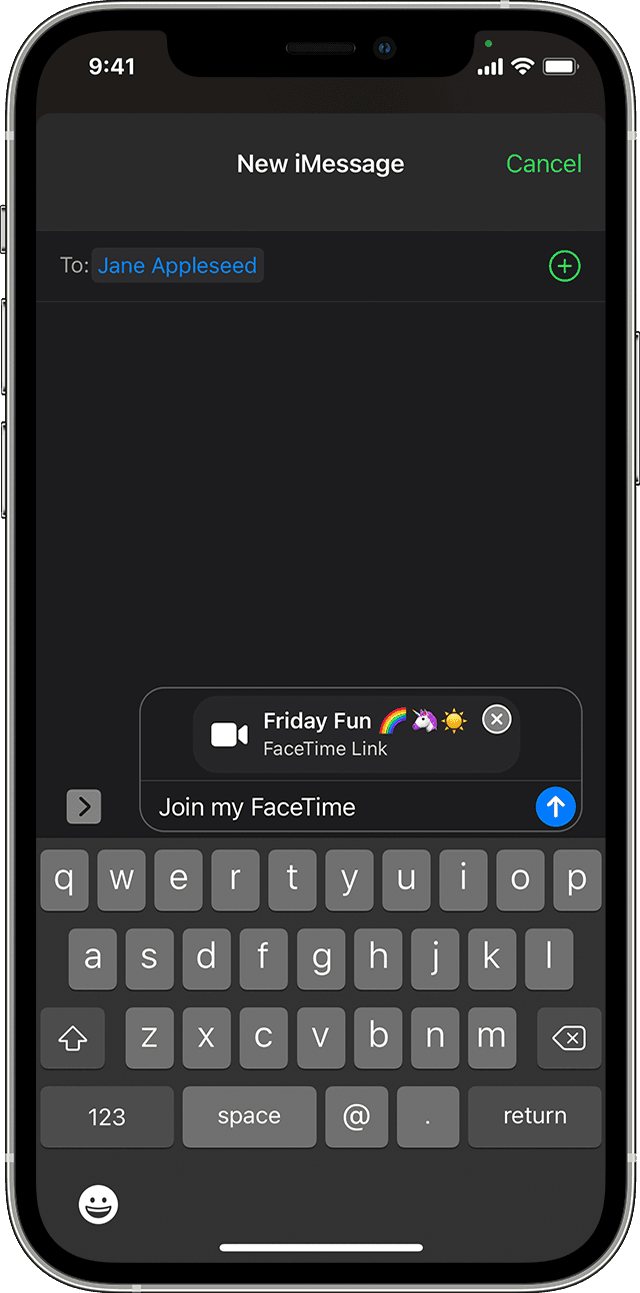How Do I Facetime From Ipad To Iphone
Use FaceTime with your iPhone, iPad, or iPod touch
Learn how to use FaceTime to make video and audio calls on your iPhone, iPad, or iPod touch.

You can use FaceTime over Wi-Fi1 or over cellular on supported iOS or iPadOS devices.2 FaceTime isn't available or might not appear on devices purchased in United Arab Emirates. Group FaceTime and FaceTime Audio are not available in China mainland on iPhone and iPad with cellular.
-
Turn on FaceTime
-
Make a FaceTime call
-
Answer a FaceTime call with call waiting
-
Create a link to a FaceTime call
-
Share your screen
-
Use SharePlay to watch and listen together
-
Spatial Audio in FaceTime
-
Filter background sounds
-
Blur the background with Portrait mode
Turn on FaceTime
Open the FaceTime app and sign in with your Apple ID. You can also do this from Settings > FaceTime.

If you're using an iPhone, FaceTime automatically registers your phone number.
If you're using an iPhone, iPad, or iPod touch, you can register your email address:
- Open Settings.
- Tap FaceTime, then tap Use your Apple ID for FaceTime.
- Sign in with your Apple ID.
Make a FaceTime call
To make a FaceTime call, you need the person's phone number or registered email address. There are a few ways to make a FaceTime call:

Answer a FaceTime audio call with call waiting
When another call comes in—either a phone call or another FaceTime audio call—you can choose one of these options:

- End & Accept: End the current call and accept the incoming call.
- Hold & Accept: Accept the incoming call and put the current call on hold.
- Decline: Decline the incoming call.
Create a link to a FaceTime call
With iOS 15 and iPadOS 15, you can create a link to a FaceTime call and send the link to others using Messages or Mail. They can use the link to join or initiate a call. Here's how:

- Open the FaceTime app and tap Create Link.
- Tap Add Name, type a name for the meeting, then tap OK. This lets others know which call they're joining.
- Select the person you want to send the link to, or send the link from Messages, Mail, or any other supported apps in the Share menu.
You can invite anyone to join a FaceTime call, even people who don't have an Apple device. They can join you in one-on-one and Group FaceTime calls from their browser. You can't create a FaceTime link with Windows or a non-Apple device, but you can join a FaceTime call if someone shares a link with you.
Learn more about using FaceTime on the web.
Creating a link to a FaceTime call isn't supported on iPhone models purchased in China mainland. FaceTime links aren't supported in China mainland.
Spatial Audio in FaceTime
Spatial Audio in FaceTime makes it sound like your friends and family are in the room with you. Their voices are spread out and sound like they're coming from the direction in which each person is positioned on the screen, helping conversations flow more naturally.
Spatial Audio is supported on iPhone 7 Plus and later, with the exception of iPhone SE (1st generation).
Filter background sounds
When you want your voice to be heard clearly in a FaceTime call and other sounds to be blocked out, you can turn on Voice Isolation. Voice Isolation prioritizes your voice in a FaceTime call and blocks out the ambient noise.
- During a FaceTime call, open Control Center, then tap Mic Mode.
- Select Voice Isolation.
When you want your voice and all the sounds around you to be heard in a FaceTime call, you can turn on Wide Spectrum to leave ambient noises unfiltered.
- During a FaceTime call, open Control Center, then tap Mic Mode.
- Select Wide Spectrum.
Voice Isolation and Wide Spectrum are supported on iPhone 7 Plus and later, with the exception of iPhone SE (1st generation).
Blur the background with Portrait mode
With iOS 15 and iPadOS 15, you can turn on Portrait mode to automatically blur the background and put the visual focus on you, the same way Portrait mode does in the Camera app.
- When you're on a FaceTime call, tap your picture-in-picture tile.
- Tap the Portrait mode button
 in the top left of your personal video tile.
in the top left of your personal video tile.
To turn Portrait mode off, tap the Portrait mode button![]() again.
again.
Portrait mode in FaceTime is supported on iPhone XS Max or later, iPad Air (3rd generation), iPad mini (5th generation), and iPad Pro (3rd generation) and later.
1. You can use FaceTime on any of these devices on Wi-Fi: iPhone 4 or later, iPad Pro (all models), iPad 2 or later, iPad mini (all models), and iPod touch 4th generation or later (only iPod touch 5th generation or later support FaceTime audio calling).
2. With a cellular data plan, you can also use FaceTime without Wi-Fi on any of these devices: iPhone 4s or later, iPad Pro (all models), and iPad (3rd generation or later).
3. When you tap a person's contact information, FaceTime tries to connect using any FaceTime-enabled numbers or addresses that you have stored for that person. To avoid placing calls to unintended recipients, make sure that your contacts are accurate and don't contain old or unused information.
Published Date:
Thanks for your feedback.
How Do I Facetime From Ipad To Iphone
Source: https://support.apple.com/en-us/HT204380
Posted by: santoschavir.blogspot.com

0 Response to "How Do I Facetime From Ipad To Iphone"
Post a Comment